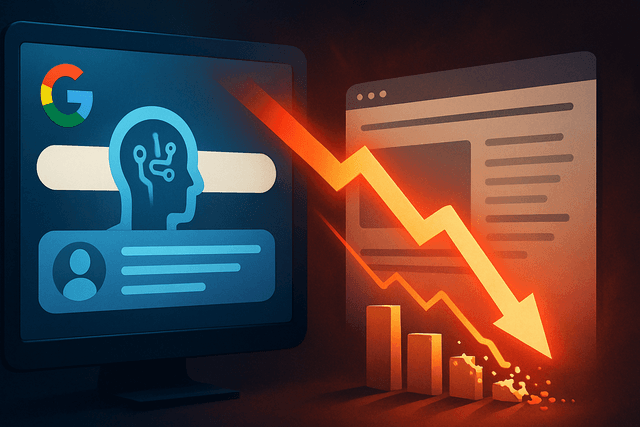Google's AI-generated search summaries are transforming the digital landscape, creating winners and losers across the internet ecosystem.
Launched in May 2024, AI Overviews now appear in approximately 20% of all Google searches, according to Pew Research Center data from March 2025. These summaries are particularly prevalent in longer, question-based queries, appearing in 60% of searches beginning with "who," "what," "when," or "why."
The impact on website traffic has been substantial. SimilarWeb reports that worldwide search traffic to more than 100 million web domains fell by approximately 15% in the year leading up to June 2025. More concerning for publishers, the percentage of news searches resulting in zero clicks to websites has grown from 56% when AI Overviews launched to nearly 69% by May 2025.
Education company Chegg has been particularly affected, reporting a 49% drop in non-subscriber traffic in January 2025 compared to the previous year. The situation became so dire that Chegg filed a lawsuit against Google in February 2025, claiming the search giant's AI features were destroying its business model. Small recipe and health bloggers have also been hit hard, with some independent sites losing up to 65% of their top-page traffic since AI Overviews began appearing for common queries.
The user behavior shift is clear: when presented with an AI Overview, only 8% of users click on a traditional link—half the rate of those who don't see an AI summary. Even more telling, just 1% of users click on the source links embedded within the AI answers themselves.
Google has consistently defended the feature, claiming that "AI Overviews send traffic to a greater diversity of sites" and disputing methodology of studies showing traffic declines. However, the company has been reluctant to share its own data on outbound clicks.
For website owners, the challenge is adapting to this new reality. Some are optimizing content specifically for AI Overviews, using structured data and clear headings to increase chances of being cited. Others are diversifying traffic sources beyond search, focusing on direct relationships through email newsletters and social media.
As AI continues reshaping search, the fundamental relationship between Google, content creators, and users appears to be undergoing a profound transformation—one that may permanently alter the economics of the open web.

